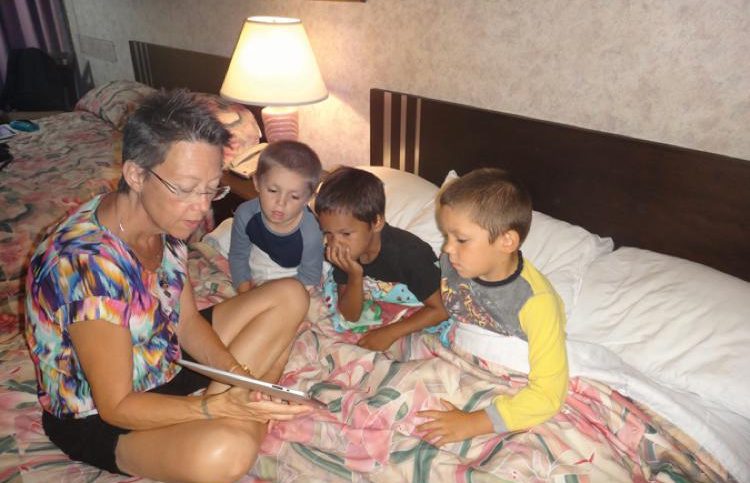The new school year is upon us again. Families are all out buying school supplies, uniforms, backpacks, and gym shoes. Almost everyone is filled with hope and anticipation, expecting to learn and grow in knowledge over the next ten months.
Well…almost everyone.
Those children who struggled in school last year may not be feeling quite so enthusiastic. Research tells us that children get the majority of their sense of identity and self-esteem in school. When the school experience is one of failure or shame, that sense of self is crippled.
One of the common areas where self-esteem and academic success are closely linked is reading. Fluent readers tend to enjoy more success academically in all areas than those students who struggle with this basic skill. When the educational context also includes a second language and issues of fluency, there is real opportunity for disaster.
There is much that parents can do at home to increase fluency, develop reading competency, and facilitate success in school for their children. Studies have shown that parents who encourage reading, and make time every day for their children to read, contribute enormously to their academic success. It’s an easy thing to manage. Here are some ideas:
1) Have books at home. Buy books. Take your children book shopping. There are several excellent bookstores in Kuwait. They carry children’s books, book series, ESL skills books, my fave Dr. Seuss, and a whole host of other reading materials. Make it a family deal to go the bookstore, often.
2) Read to your children daily. My mother used to eat her dinner while she was cooking, then read to us while we ate. We read while traveling in the car, we read while waiting for something. Start small. Pick a book and read to them 15 minutes at night before bed, or while they have breakfast, or at lunch. Make a point of gathering everyone in the sala (living room) and reading. Read in English, read in Arabic, read in Farsi, and read in German. Whatever languages are in the house. Just read.
3) With school age children, practice paired reading in English until they are completely fluent. Paired reading instructions can be found online at www.readingrockets.org/strategies/paired_reading. This website also has other excellent resources for developing reading fluency.
4) Practice sight words with all of your children. The Dolch Sight Words can be found with a quick Google search, as can the Fry Sight Words. Make it a game. Offer M&Ms or a trip to the movies, or a new book as a reward for learning the sight words to perfection.
5) Have your child assessed if reading problems persist, or your child develops negative behaviors to avoid reading or writing. The earlier a problem is diagnosed, the better for everyone. Proper intervention techniques can be implemented, weaknesses addressed, and fluency supported before your child begins to hate school and learning.
6) Finally, work with your child’s school. If the teacher or counselor suggests that extra help is needed, or that a problem has been identified which requires particular intervention, pay attention. A child who struggles to be successful in school also struggles with self-esteem, identity, and a whole host of other issues can develop.
A quick note about behaviors – almost 80% of the referrals we receive for assessment at the Soor Center are because someone believes the child in question has an attention/focus problem. Kuwait falls within the global average of 5-7% of children who actually meet the criteria for a diagnosis of Attention-Deficit Hyperactivity Disorder – AD/HD (which also includes ADD). That means that about 75% of the children referred have a different problem. The diagnostic overlap for many disorders means that simple observation is NOT enough to decide that a child has an attention/focus disorder. These same behaviors can be caused by undiagnosed learning disabilities, anxiety, trauma, family dysfunction, health-related issues… the list is long. Poor language fluency and reading problems are also on that list.
We all want our children to be successful in school for a lot of reasons, all of which matter. Help your children have the best chance of being successful by helping them develop a reading habit. Read to them and read with them. Just Read! Read! Read!
A Canadian psychologist traveling the world on a busman’s holiday, Dr. Susannah writes about anything that catches her attention. Bossy from birth, compassionate by choice, and funny by accident. You can visit: www.soorcenter.com or follow her on Twitter











